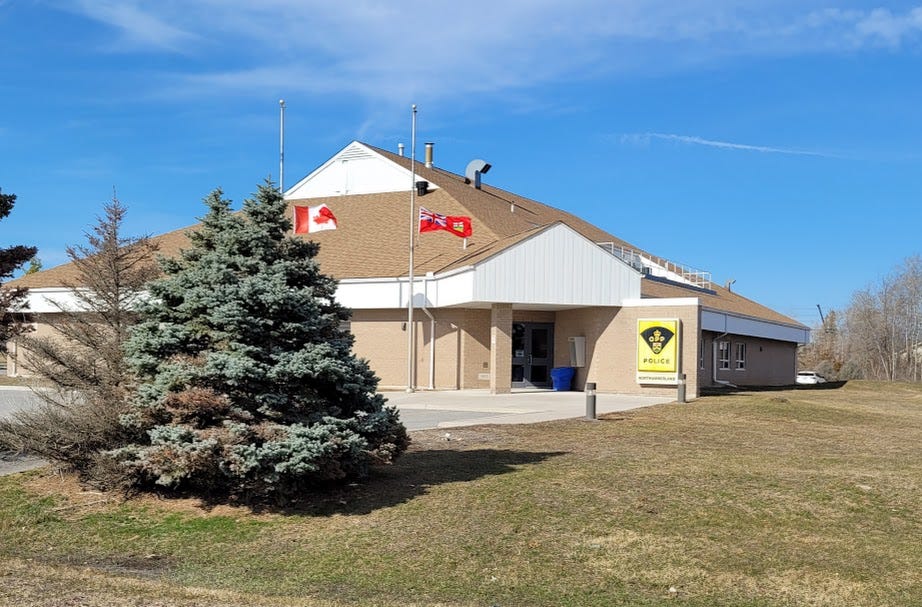OPP costs jump again
Your property taxes in 2026 will be hit by rising police salaries
The rising cost of Ontario Provincial Police services is going to send your property taxes higher.
At this point, Trent Hills and other municipalities don’t know exactly how much higher their police bill will be, but Solicitor General Michael Kerzner has promised to cap the increase for 2026 at 11 per cent. In a letter late last month, he also promised to send the municipalities their tax bills by the end of November.
Mayor Bob Crate says that as Trent Hills drafts its budget in coming weeks it will assume an 11 per cent increase, about $330,000, which is on top of the 17 per cent increase it faced last year. The burden will be increased this time because after complaints from around the province last year, the Ford government provided the municipality with $431,912 to ease the pain and keep the local cost unchanged at $2.55 million. This year no one is expecting any pain relief from Queen’s Park.
“It’s just not sustainable,” Crate said during the council meeting on Tuesday. “I can’t believe our government has let this happen.”
“We don’t have any control over the situation,” agreed Deputy Mayor Mike Metcalf, noting that the province simply sends the municipality a bill for OPP services.
Council passed a motion asking someone from the OPP to appear “to explain the factors contributing to recent increases in annual billing, and to clarify how these increases correspond with actual service demand within the municipality.”
The motion, proposed by Councillor Daniel Giddings, also requests “a detailed written explanation and cost breakdown outlining the primary drivers of the recent financial increases.”
Salaries are the primary driver. Wages and benefits account for more than 85 per cent of the OPP’s spending, according to the Ontario Auditor General. Last year, the province and the OPP union reached a four-year deal covering 2023 to 2026. By the end of the contract, a first-class constable will earn $123,194, says the Ontario Provincial Police Association, the union that represents about 10,000 officers and civilian employees.
In his letter, Kerzner said the province has reviewed the way it calculates OPP bills. “As we undertook this review, we heard loud and clear that greater clarity, predictability and stability in the OPP cost-recovery model, and associated billing statements, is critical to municipalities as annual budget processes are undertaken.”
The calculation is a complicated process that is affected by how much service a municipality gets and how that compares with other areas, said Councillor Rob Pope, who is the town’s representative on the Northumberland OPP Detachment board. The new regulation explaining the system is here.
Kerzner said municipalities that do not use a lot of services will pay less because the threshold for savings will be lowered.
But the Association of Municipalities of Ontario has looked at the changes and is not impressed.
“Unfortunately, these changes do not provide a long-term solution to the growing policing cost pressures municipalities across Ontario are facing,” it says on its website. “In addition, preliminary analysis suggests that very few municipalities will benefit from the lower threshold levels.”
Pope said he is confident that police service is improving in the county and that the detachment is coping with staffing shortages that have been a problem in recent years.
Northumberland Detachment Commander Mike Cavanaugh says this area currently has about 73 per cent of the front-line staff “available for deployment relative to our approved staffing complement.”
“Despite the challenges, we continue to fully staff every shift across all municipalities, ensuring that every community receives the personal coverage and service it requires,” he said in an email. “Our operational planning prioritizes maintaining front-line presence to meet the demands of the community.”
“In September, we welcomed three new recruits and two experienced officers who transferred into Northumberland,” he said. “We are anticipating additional recruits in the new year, which will further strengthen our front-line capacity.”
In an interview last week with Consider This Northumberland, John Davison, a Hamilton Township councillor who is chair of the OPP detachment board, said a full complement would be about 75 officers and it currently has between 50 and 60.
He said attrition due to retirement has been a major issue.
You can read all Trent Hills News stories anytime on the website.




“I can’t believe our government has let this happen.” - this is the problem. Any trust or faith in government.